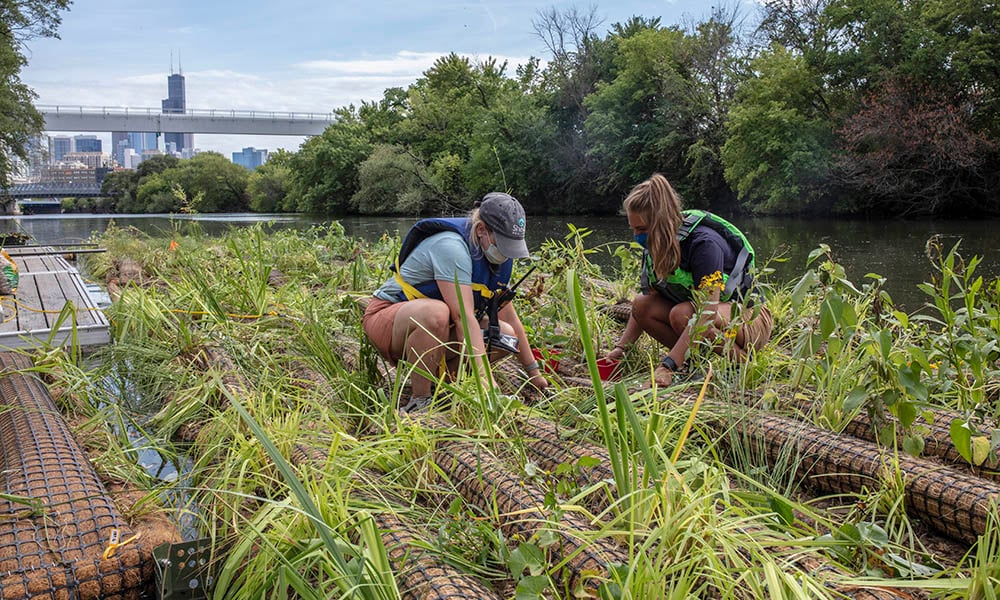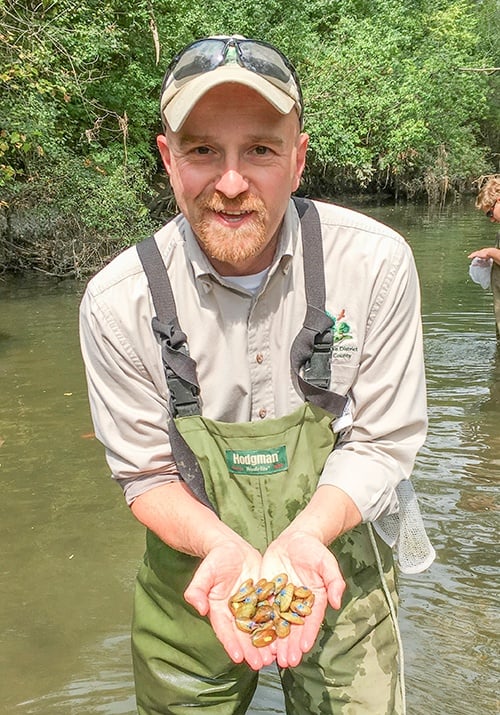
The DuPage Forest Preserve District recently embarked on a new and unique partnership with Urban Rivers, a nonprofit organization based in Chicago with a mission to transform city rivers into urban sanctuaries.
Urban Rivers’ flagship project, called the Wild Mile, was designed with the city of Chicago and the Wild Mile framework team in 2019. The plan calls for creating a milelong floating park on the North Branch of the Chicago River between Chicago and North avenues on the east side of Goose Island.

Urban Rivers' Wild Mile project calls for creating a milelong floating park on the North Branch of the Chicago River between Chicago and North avenues on the east side of Goose Island. Image courtesy of Skidmore, Owings & Merrill (SOM).
The Wild Mile’s goal — one that closely aligns with the Forest Preserve District’s mission — is to create a new environment for habitat, recreation, and education. When complete, the Wild Mile will incorporate constructed floating wetlands, wooded shorelines, public walkways and kayak docks along the North Branch. Urban Rivers’ vision is for the Wild Mile to function as a public park, open-air museum, botanic garden, kayaker destination and community classroom, and to provide habitat for native wildlife.
Urban Rivers began installing floating wetlands in 2017 and hopes to have 12,000 square feet of wetlands installed by the end of 2021. Now, they’re looking to further improve the ecosystem by incorporating freshwater mussels into their wetlands.

One of the floating wetlands created as part of Urban Rivers' Wild Mile project along the North Branch of the Chicago River east of Goose Island. Photo courtesy Urban Rivers.
Freshwater mussels are filter feeders — consuming algae and plankton — and can remove silt suspended in the water, helping to clean rivers, streams and lakes. Mussels are also an important food source for many species of wildlife, including muskrat, raccoon, herons and more.
The Forest Preserve District’s Urban Stream Research Center is one of the few facilities in the country propagating freshwater mussels. Since opening in 2012, the Urban Stream Research Center has successfully propagated more than 25,000 mussels that have been released into local waterways. Having proven success, Urban Rivers approached the Forest Preserve District with a request to propagate mussels for introduction into the Chicago River.

A great blue heron sits among one of the floating wetlands on Urban Rivers' Wild Mile project along the North Branch of the Chicago River east of Goose Island. Photo courtesy of Urban Rivers.
In January 2021, Urban Rivers staff provided a female giant floater (Pyganodon grandis) plump with golchidia, or larvae, inside her. Once extracted, the microscopic larvae will begin their lives by attaching to the gills of live fish for about two weeks. Then, juvenile mussels are fed algae in the laboratory until they grow to approximately 2 mm long. During summer months, juvenile mussels are placed in enclosures in local lakes to grow in a natural setting. Once juvenile mussels grow to 20 mm in length, they can be returned to Urban Rivers for permanent placement in the North Branch of the Chicago River.
The partnership between the Forest Preserve District and Urban Rivers is not only an opportunity for staff to learn and grow, but a chance to engage a new community and promote healthy watersheds across the region.

A group from Shedd Aquarium help plant one of the floating wetlands on the Wild Mile along the North Branch of the Chicago River. Photo courtesy Shedd Aquarium/Brenna Hernandez.
Scott Meister
